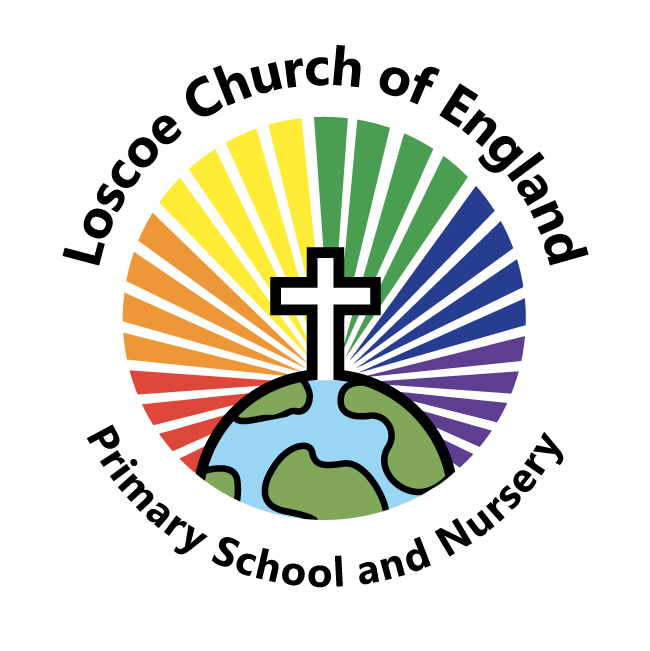Phonics
At Loscoe C of E Primary and Nursery School we use the Little Wandle Phonics scheme. This is fully matched to the National Curriculum.
Little Wandle Phonics teaches children to read accurately and fluently with good comprehension. They learn to form each letter, spell correctly, and compose their ideas step-by-step. We aim for each child to have a firm phonetic foundation to help build their reading and writing skills upon. Our phonics team is led by Miss Davy. For any information regarding phonics please email lisad21@loscoe.derbyshire.sch.uk
Our Phonics Action Plan:
School Phonics Action Plan 2024 2025
Phonics at home
At Loscoe C of E Primary School and Nursery, we have an open door policy which enables our staff and parents to develop successful relationships that help support and nurture our children. This means we are able to help our parents develop their own phonetic knowledge, so they are more able to effectively support their child’s phonetic development at home.
In Squirrels, parents have regular meetings with the teachers which gives them the knowledge to support their child’s next steps. In Alps and Andes, we hold phonics meetings throughout the year, as well as individual parents meetings. In the phonics meetings, we share how phonics works, the best ways to help your child read and write as well as important information about testing and age expectations. In all classes, we share sound mats, word book marks, ideas for reading and other resources throughout the year.
Frequently asked questions about phonics and reading
- Reading and phonics - information about how books are linked to your child's reading.
Tricky words
'Tricky' words are words in the English language that we often use but they are not phonetically decodable. It is important for children to learn these words to become able readers and writers.
Within school, we teach these tricky words through fun games, using word cards and embedding them into our environment.
Squirrels
In our nursery, also known as Squirrels, we recognise the importance of early phonemic awareness (the ability to be able to identify and manipulate sounds in words) as a building block to helping children to be able to read, write and spell. To this end, in Squirrels all children have access to phonics activities during each session they attend.
As there is a wide age range of children within the nursery, we ensure that all phonics activities are delivered in a developmentally appropriate way; for example, some are activities are child-led and delivered as part of their chosen play activity whereas the majority of the older children will take part in a focussed, adult-led learning session.
Alps
In our Reception class, all children are assessed to gain an in-depth picture of their current level of phonic knowledge. All children’s starting points are used to ensure that their phonics education is continued at the right level. Some children may continue to need activities to develop their listening skills whereas other children are ready to start blending letters to begin reading simple words. Every child in Alps receives a daily phonics session of approximately twenty minutes.
In Alps, as with all our EYFS and KS1 teaching and learning, activities are designed to be engaging, interactive and fun. Children need regular repetition to embed their learning so they will frequently revisit past learning to ensure that it is remembered.
Andes
In Andes, all children are taught phonics in a whole class setting. To enable children to overcome misconceptions, plugs gaps in learning and access the age-expected learning, we intervene throughout the day and within our enhanced provision. All activities are engaging, interactive and fun, and appropriate, so each child feels challenged, yet successful.
In Andes, we begin to develop a deeper understanding of spelling, through learning spelling patterns, phonic rules and practising tricky and common misconception words. We also combine our phonics teaching with comprehension skills, to enable our children to become fluent, confident readers.
Phonics screening
The phonics screening check is not a formal test, but a way for teachers to ensure that children are making sufficient progress with their phonics skills to read words. The check, usually administered in June, can show that children are on track to become fluent readers who can enjoy reading for pleasure and for learning.
Click here for more information about the Phonics Screening Check
We aim for our children to exceed the expectations laid out in this check, to enable them to flourish within reading throughout their life. We understand that phonics is only one part of becoming a successful reader. Although it is an important gateway to decoding, inference and comprehension skills must also be effectively developed to support a child enjoying reading for pleasure.
Here are our previous phonics results:
(2020 and 2021 no test due to Covid)
|
Year |
% passed |
| 2024 | 85% |
|
2023 |
86% |
| 2022 | 67% |
|
2019 |
91% |
